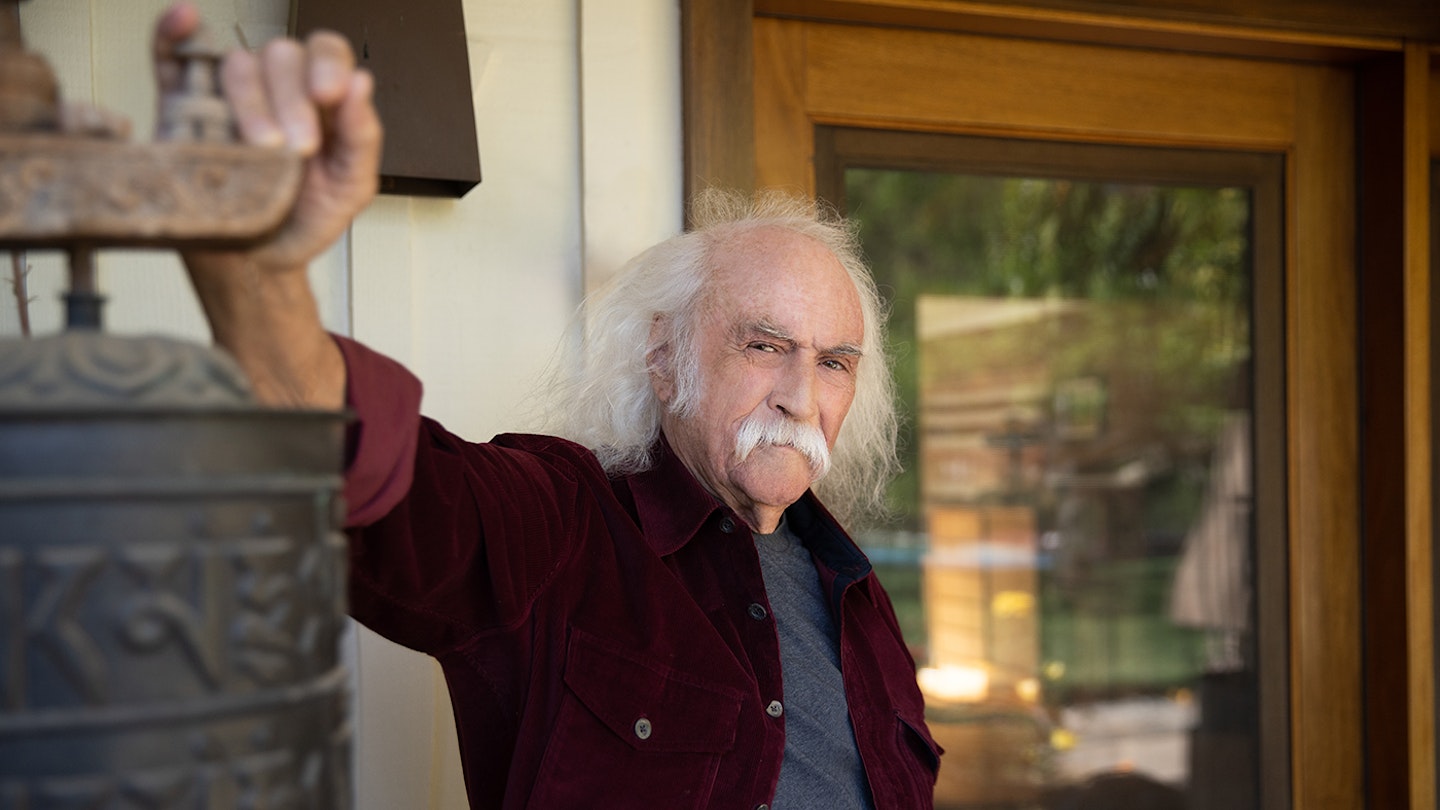With his sharp tongue and gossamer voice, huge appetites and high ideals, David Crosby lent beauty and edge to every band he was in: The Byrds, CSNY, and more. Two months on from his death, MOJO selects some of Croz’s greatest songs...
The Byrds
I See You
(from Fifth Dimension, Columbia, 1966)
I See You was a marvellous indicator of what David Crosby’s forward-looking embrace of psychedelia represented: surrealistic lyrical passages, a flash of Coltrane-inspired guitar riffing, and a blur of memories, real or not – “I know you/Met before, seventh floor/First World War” – Croz would return to later, more vividly, with Déjà Vu. Crosby’s touch on this era of The Byrds was unmistakable – adventurous, deliberately risk-taking, and open, airy chord patterns not exactly in the folk tradition. A McGuinn/Crosby collaboration, this harmony-laden track was all Crosby in retrospect – and it stood out enough for baby-band Yes to want to cover it on their very first album, for later pub rockers Starry-Eyed & Laughing to grab its “thought talk” lyric for an album title. So very good, even now.
"Look man, I did everything wrong..." David Crosby Remembered.
David Crosby
Triad
(from Déjà Vu 50th Anniversary, 2021)
Anyone who ever saw so much as a Croz tweet knew candour was never a problem. Still, even he could struggle with Triad, a gorgeous but prurient ode to threesomes so direct The Byrds only released it (find it on the deluxe Notorious…) decades after Jefferson Airplane cut it on ’68’s Crown Of Creation. “We write a lot of songs about… people that we love,” he said by way of half-apologetic introduction to the song on CSNY’s 4 Way Street. “So sometimes it’s really hard to sing them, too.” It’s the solo demo included on 2021’s bumper Déjà Vu that’s most convincing, beautiful for its naked vulnerability. Voice soft but insistent, chiming guitar as curious as a roving eye.
Crosby, Stills & Nash
Long Time Gone
(from Crosby Stills & Nash, Atlantic, 1969)
“You got to speak out against the madness/You got to speak your mind if you dare,” implores Crosby in a bluesy lead vocal in this loping CSN rocker featuring Stills’s ferocious lead guitar and inspired by Presidential candidate Bobby Kennedy’s 1968 assassination. A year earlier, during The Byrds’ set at 1967’s Monterey Pop Festival, Crosby had controversially inveighed against the establishment’s “facts” regarding Bobby’s brother’s 1963 murder. Long Time Gone was used as the opening song for the 1970 movie release Woodstock, highlighting the sociopolitical subtext that undergirded both festival and film. Years later, Crosby co-wrote a book called Stand And Be Counted, a history of music and activism. In or out of the political arena, Croz rarely held his tongue.
David Crosby
Cowboy Movie
(from If I Could Only Remember My Name, Atlantic, 1971)
Much of If I Could Only Remember My Name exists in a kind of fugue state, wreathed in the dawn mist coming off Mount Tamalpais. Cowboy Movie, however, is a wired exception, a chance for Crosby and his all-star friends to show off their chops. On the official eight-minute take, the band is basically the Grateful Dead, but the 10-minute alternate version that first surfaced on the 2006 Voyage comp is the keeper, with Neil Young duking it out with Jerry Garcia in a jam that recalls CSNY live versions of Down By The River (Garcia affects the sputtering, indignant Stephen Stills role). The lyrics, too, are more narrative and focused than the parent album’s impressionistic norm – but are the bickering outlaws merely CSNY in Western cosplay? “You know I’m crazy,” notes Croz, “but I ain’t real dumb…”
If I Could Only Remember My Name... David Crosby's masterpiece revisited.
Crosby & Nash
Carry Me
(from Wind On The Water, ABC, 1975)
Inspired by Crosby’s final visit to his mother in hospital, when she asked to die because she “felt like a bird with weights tied to her feet”, this begins as a classic Crosby paean to freedom and escape, yet evolves, like a Larkin poem, from an observation on the self to something far more abstract and philosophical. Part of its beauty is in how Crosby counters the soaring, sentimental nature of the chorus with informal phrasings (“’Course mostly I remember her laughing”). Like many of Crosby’s finest songs, it’s also a song about songwriting, how music can free you from the worries of the world, a message borne out by the sweet, soaring Crosby/Nash harmonies that do exactly that.
BECOME A MOJO MEMBER today and receive every new issue of MOJO on your smart phone or tablet to listen to or read. Enjoy access to an archive of previous issues, exclusive MOJO Filter emails with the key tracks you need to hear each week, plus a host of member-only rewards and discounts.
